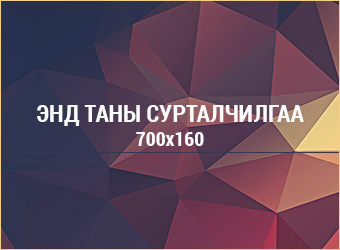I try here to explain the basic principles of economics relevant for assessing the OT treaty.
- Rio Tinto is a public corporation, i.e a business entity engaged in as efficient as possible stewardship of the financial resources entrusted to it by its millions of shareholders. Therefore, it will invest in Mongolia only when it is feasible to receive at least the “normal” level of profit after recuperating all the costs, given the comparably profitable projects implemented in other countries. That’s why resource-owning host countries deduct from mining companies’ income taxes all production-related costs, including interest rate payments and depreciation expenses and allow them to carry over the loss of previous periods to a later profitable period’s tax assessment. Moreover, if such carry-over period is limited to 20 years in the USA, mining countries such as Australia, UK, Canada, Norway, Chile and Botswana have no such time limitation. Norway even allows deduction of costs of unsuccessful exploration from rent taxation. Ultimately, only the above–normal profits or rent, dependent on the quality and development costs of the deposits, can realistically be shared. Only when the commodity’s price rises increasing the rent, can the mining company, bearing all the risks of the project, share more. Currently, the international copper price is already declining and could fall even further with the intensification of the China-US trade war. As increasing the size of the pie is in the interest of both parties, it makes more sense to cooperate for higher profitability rather than fight over dividing it. Therefore, one should focus on the overall cost-benefit calculations of the whole project cycle and mutually beneficial collaboration, rather than on one-two years’ tax disputes.
- Mining projects require large-scale investment with longer-horizon cost recovery and their profitability is highly susceptible to the volatilities of international commodity prices and host country policies. Therefore, raising the necessary financing and committing the investment resources are possible only if reasonable long-term stability is guaranteed. On the other side of the coin, the contracting partner country is vulnerable to the so-called “time inconsistency” incentive to opportunistically renege on its promise, once the investor has made the lumpy investment. Hence the ancient dictum of business “pacta sunt servanta” is observed and the uncivilized party who breaches the contract ends up bearing the consequences, even if not explicitly as recompense, possibly in the form of a higher “risk premium” on the interest paid or reduced dividends. Otherwise the investor will not enter the contract and the host has to find a mechanism to “tie his hands”, as the Nobel prize economist Thomas J. Sargent has shown on the example of a Central Bank destroying its capacity to control inflation by increasing money supply after businesses have committed to curb their wage and price hiking.
- The benefits the two parties get from a business transaction are determined not so much by which side gets more, but by the difference between the contracted price and the partners’ initial conditions. It is like the differing sizes of the gain from international trade determined by the distance between the world market price and the autarky prices of the countries opening to trade. For an underdeveloped country without the required technology and financial resources, underground natural resources are dead wealth with a negative value equal to the potential cost of exploration and development of the deposits. The technical and fund-raising capacity to make them economically-profitable assets is often concentrated in a few transnational mining companies. Only when conditions ripen for developing the deposits by such a company, does the host country get a chance to cease to be “a beggar sitting on a chest full of gold” and climb one step up the ladder of economic development. The main avenues for expanding the developmental impact of a mining project are fostering linkages with the other sectors of the economy, absorbing the world class technology, management and business practices, and upgrading the skills level of the domestic workforce. For instance, building the power station and railway lines in time to transport the mineral products, nurturing supplier SMEs and developing financial markets, taking advantage of the mining boom, are some of the priority tasks a host country can take on.
- Extraction of mineral resources follows the same economic logic whether done by foreign or domestic companies. The opportunity cost of delay keeps rising as long as the rate of international commodity price rise is not faster than the rate of interest (Hotelling rule). From this point of view, the harm from disrupting OT’s development due to disagreements about the treaty may far exceed any benefit hoped to be obtained by revising the contract. In the case of Tavan Tolgoi coal deposits, whose price on the international markets is likely to further decline into the future, every passing day marks a big loss.
- Large deposits as OT are developed by many years of efficient investment, whose viability is subject to many unknown future factors. So, fundraising for such a project is based on a relatively optimistic forecast which is made more realistic with the passage of time as things materialize. The absolutely certain and final assessment of net benefits will be clear only after the closing of the mine, including rehabilitation etc. Under such circumstances, one of the major objectives of the treaty is to enable the host country to start receiving in advance its share of the financial benefits from the project without too much negative impact on investment and production processes. The best option might be to pass all the risks to the investor by selling the project for an agreed price if the forecast evaluation of the project were reasonably certain, as indeed was practiced until the 1960s under the “risk service contracts” of the oil industry.
- In modern times, the main instruments of advance benefit sharing with the host country are royalties based on the production volume, corporate income taxes based on profit or excess profit taxes based on the rent, usually linked to the increase in the commodity’s price. Royalty payments start earliest and are more assured, but negatively affect investment and production expansion, so should be set at a relatively low levels, while the corporate income tax is set at a level similar to other sectors in order to avoid distortions. Both are used in Mongolia, in addition to equity participation. Equity sharing gives right to dividend, but is regarded as risky as it might result in more loss rather than profits, as shown by the bitter experience of such countries as Nigeria which incurred losses due to its borrowing to increase its equity share. From the project’s view, it is equivalent to a tax on dividend, even if it is awarded “free” to the host country. Therefore, insisting on increasing the equity share is fraught with additional risk of future losses. Anyway, for a successful operation, plowing back the dividend into expansion is more beneficial than distributing it.
- The total benefit received by the host country from the overall operation of a mining project covering all its stages is measured by the share in the net cash flows, which in Mongolia’s case is shown to be at a similar average level of other countries in a recent book (p.78) by G.Uyanga who works for ESCAP. This shows the importance of protecting the smooth operation of OT by responsible partnership and good faith implementation of the contract obligations in order to maximize the yield of the whole project, instead of disruptions by hasty criticism before even the early stage benefits are realized fully.
- Transnational companies are able to shift profits using transfer pricing and the countries who try to control it tend to lose revenue. So, the Financing for Sustainable Development Office, UN, developed in 2011 the UN Model of Double Taxation Convention Between Developed and Developing Countries, in 2012 UN Practical Manual on Transfer Pricing for Developing Countries, and is working now on a Manual on Extractive Industries Taxation. The IMF Institute of Capacity Development launched two weeks ago a free online course on Macroeconomic Management in Resource-rich Countries. Our politicians and the general public would greatly benefit from them and maybe a training on natural resources management could be organized in Mongolia with the IMF cooperation, using the case study of OT.
April 2018
Batbold Tserenpuntsag, economist, UN Secretariat












 @
jargaldefacto
@
jargaldefacto 
 @
jariunaa1
@
jariunaa1 
